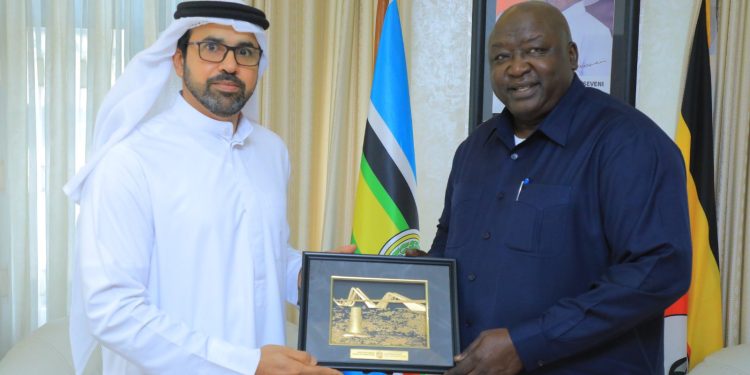The United Arab Emirates (UAE) has firmly dismissed reports suggesting that it had imposed a blanket visa ban on Ugandan nationals, clarifying that no such directive exists.
The UAE Ambassador to Uganda Abdalla Hassan Alshamsi described the claims as “unfounded.” “What is circulating out there is false,” he said, emphasizing that there has been no official communication regarding a visa ban.
The ambassador explained that while visa restrictions may occasionally be introduced for specific reasons, the current rumors were baseless.
He further noted that the UAE, like any other country, “reserves the right to deny entry to applicants who fail to meet immigration requirements.”
The clarification comes after widespread online reports claimed the Gulf nation had introduced a blanket ban effective January 2026.
Uganda has strong labor ties with the UAE, with more than 100,000 Ugandans legally employed there, mainly in manual and domestic work.
The Gulf state, which includes Abu Dhabi, Dubai, Sharjah, Ajman, Umm Al Quwain, Ras Al Khaimah, and Fujairah, remains one of the top destinations for Ugandan migrant workers.
The UAE has previously imposed temporary restrictions. In 2022, it suspended the issuance of 30-day visit visas to Ugandans and citizens from 20 other countries—a move widely linked to curbing overstays by travelers abusing short-term permits.
The latest speculation emerged in the wake of heightened scrutiny after a BBC investigation exposed a Ugandan national, Charles Mwesigwa, accused of running a sexual exploitation network in Dubai.
He was recorded telling an undercover reporter he could provide women for sex parties at fees starting from $1,000 (about Shs 3.5 million), claiming they were willing to do “pretty much everything” requested by clients.
While Ambassador Alshamsi did not link the investigation to any changes in immigration policy, the scandal has fueled speculation about tighter controls for Ugandans seeking opportunities in the UAE.


















